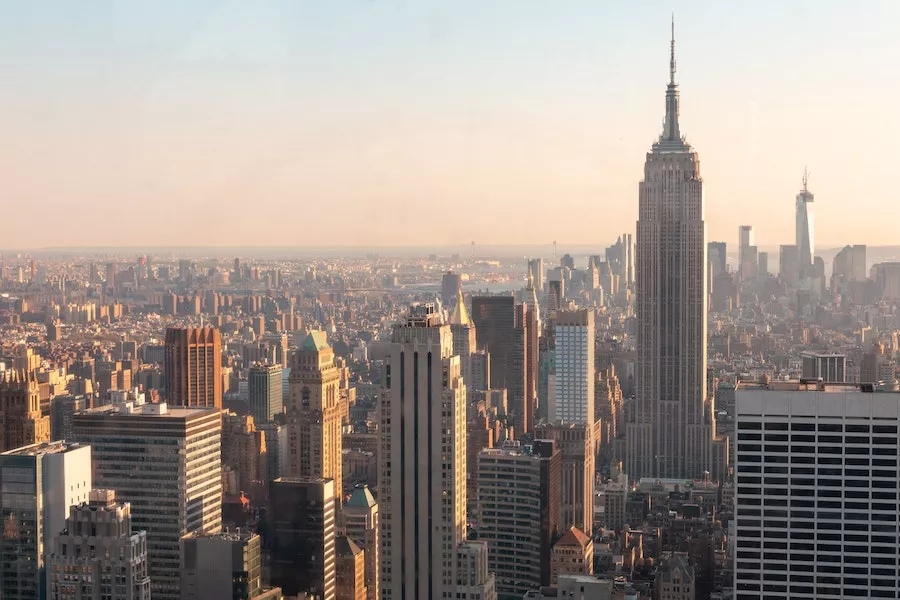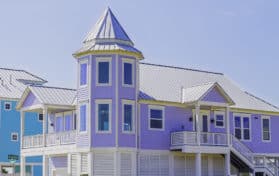
Sleep is essential for our physical and mental well-being. Despite the importance of sleep, many of us struggle to get the quality and quantity of sleep we need. Stress, work schedule, and environment can all contribute to poor sleep.
In this article, we will explore the US cities with the worst sleep quality.
We shall examine why residents of these cities may find it difficult to get a good night’s rest.
Here are the cities with the worst sleep quality:
1. New York
New York City is known for its loud and constant noise. Noise pollution can make it difficult for residents to fall asleep and stay asleep.
The sounds of traffic, sirens, and construction can be heard throughout the city, even at night.
New York City is also known for its bright lights, which can disrupt the body’s natural sleep-wake cycle. New York ran a report on the impact on this on sleep quality recently.
Exposure to light at night can interfere with the production of melatonin, a hormone that helps regulate sleep.
The city is known for its fast-paced lifestyle and around-the-clock working culture. It is normal and expected for people to work long hours in the city.
It can lead to people working late hours, long shifts, and people working in shifts. All of this can lead to a disrupted sleep schedule.
2. Los Angeles
Los Angeles has a vibrant nightlife and a beautiful party scene. It is the go-to destination for people looking to have a good time.
It, however, doesn’t do the residents any favors in terms of sleep quality.
People staying out at night and having different schedules and lifestyles can disrupt sleeping patterns.
The city suffers from a high population of homeless people. These folk generally have worse sleep quality due to limited sleeping areas.
Many people often sleep on the streets, which could be better. It contributes significantly to the city’s overall poor sleep quality.
Light pollution can also have an impact on sleep quality. The bright lights from buildings and streetlights can make it difficult for people to fall asleep.
It disrupts the production of melatonin, a hormone that regulates sleep. It can make it harder to fall asleep and stay asleep.
3. Chicago
Chicago is a major city with a lot of traffic on the roads and in the air.
It can lead to high levels of noise pollution. Noisy cities generally make it difficult for residents to fall asleep.
Additionally, Chicago is a big city with lots of people. So, it has many industrial, commercial, and residential areas. These areas experience high noise levels from construction, factories, and businesses.
The city residents generally work long hours, which contributes to poor sleep. Long work hours generally mean fewer sleep hours and more stress.
4. Houston
Houston is a major city, and it has a large number of industrial, commercial, and residential areas. It leads to noise from construction, factories, and businesses.
Air pollution is another factor that impacts the city’s sleep quality. Exposure to pollutants such as carbon monoxide, ozone, and particulate matter can cause respiratory problems. It makes it harder to breathe and sleep well.
Houston has a fast-paced lifestyle that can contribute to stress and anxiety. It can make it difficult for people to fall asleep and stay asleep. The city is known for its working culture. People often spend long hours at work.
5. Philadelphia
Stress and anxiety are significant contributors to a lack of sleep.
Urban areas are known for fast-paced, high-stress environments, which can contribute to stress and anxiety.
It makes it harder to fall asleep and stay asleep. Philadelphia is one of the world’s most stressed cities, not just in the United States.
Philly residents often experience long working schedules and long commutes.
Long working hours and commutes can disrupt the body clock and lead to fatigue.
Like many modern cities, Philly has brightly lit streets and alleys.
It can be a nuisance, particularly in residential areas, and contributes to poor sleep quality.
6. Oklahoma City
High temperatures and humidity can make sleeping uncomfortable, especially during the summer months.
Oklahoma is generally a hot city, and some residents might find it difficult to get quality sleep, especially in the hotter months.
Oklahoma suffers from many socioeconomic problems. The state has a high poverty rate.
Many homeless folks in the cities often don’t have decent sleeping conditions. Poverty and stress affect sleep quality for residents in the city.
Urban areas can have limited access to green spaces. It can negatively impact mental and physical health. It also impacts the overall sleep quality.
7. Columbus
Columbus has some of the worst sleep quality statistics for major US cities.
A major factor influencing sleep quality in metropolitan areas is air pollution.
Pollutants like carbon monoxide, ozone, and aerosols can all cause respiratory problems. It makes breathing and sleeping difficult.
Columbus is a large city with a significant population. As a result, it has a significant range of industrial, commercial, and suburban neighborhoods.
Construction, factories, and businesses generate a lot of noise in these areas.
The city is recognized for its busy lifestyle and 24-hour working atmosphere. In the city, working long hours is routine and expected.
It can lead to individuals working late hours and long shifts. Residents of the city could use a proper work-life balance.
Can I Do Anything To Improve My Sleep Quality?
Sleep quality is hugely important for overall health and fortunately there are many to get better sleep.
Magnesium, melatonin, GABA and a host of other supplements also improve sleep quality and helps you rest well after a long and tiresome day. And there are some sleep aids which have combined a lot of these natural solutions to helping people fall asleep quickly. Not all sleep supplements are made equal, but Center TRT made a good breakdown of the best sleep aids here.
And there’s a host of other supplements that have been shown to be effective. Avoiding caffeine later into the day can play a huge part and things like blackout curtains, particularly if you live in a city with a lot of light pollution can help.
Conclusion
The state of sleep in America could be better. There are several cities known for their atrocious poor sleep quality. Which particularly alarming due to the rise of sleep disorders in the US.
Factors such as high-stress levels, long commutes, and noise pollution make it difficult for residents to sleep. However, there are steps that residents can take to improve sleep in these urban areas.
City governments play a role by implementing programs that aim to reduce stress and improve these cities’ overall quality of life. They can do so by building more parks, investing in public transportation, and promoting noise reduction.





